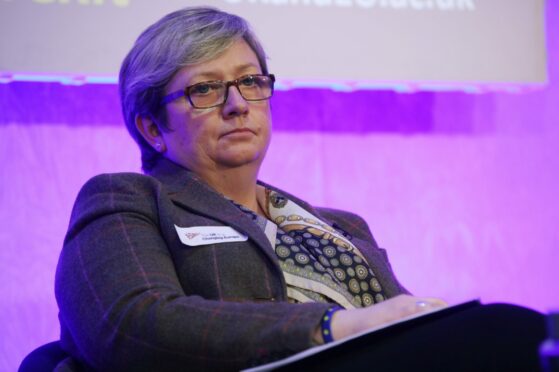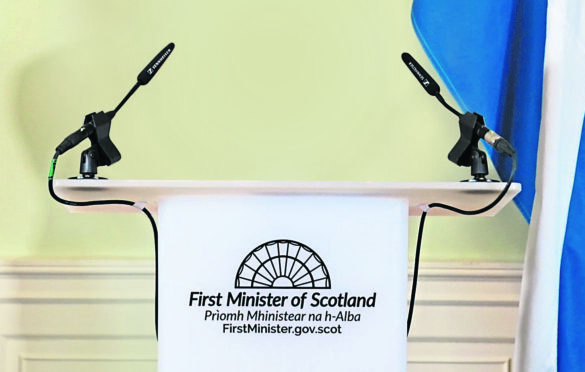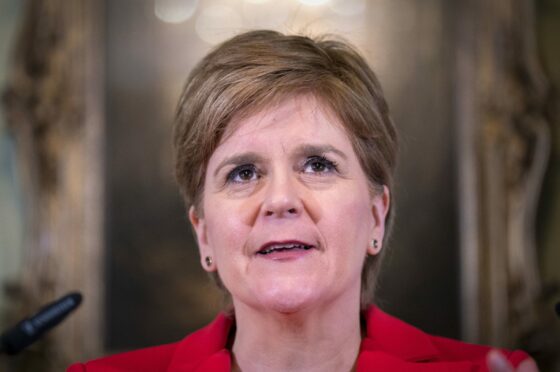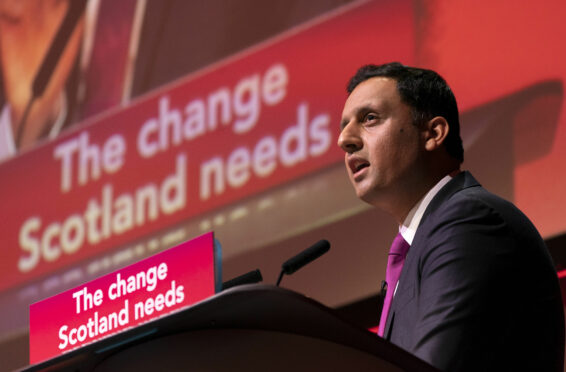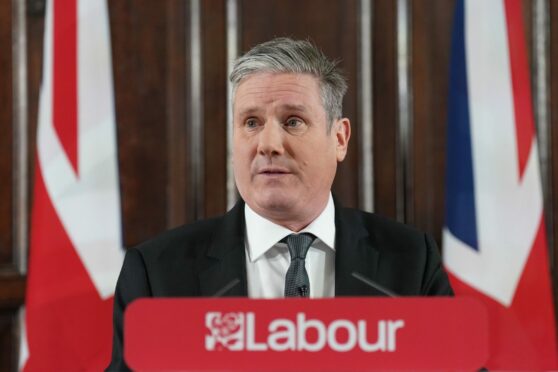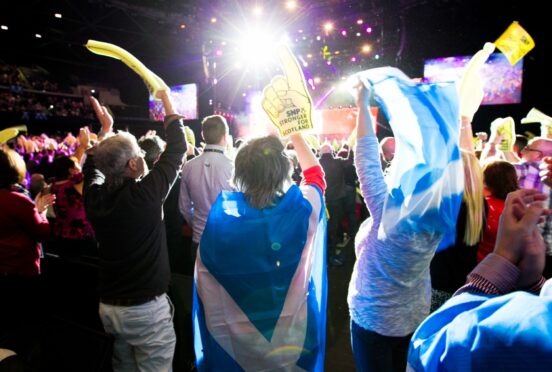
Where next for Scotland’s independence movement? As an independence supporter it feels as though we are both tantalisingly close and yet frustratingly far from our goal. The mountain peak is within sight, but it seems there is no clear route to the top.
The final few metres may turn out to be the most challenging, requiring both patience and fresh thinking, and perhaps even a completely new approach. Certainly, as Nicola Sturgeon herself has now concluded, it at least involves a new SNP leader and first minister who will be tasked with charting the way.
Have no doubt though, it is the first minister, more than any other politician and more than any previous SNP leader, who has got the independence movement to this point, to this place of real possibility. And while she won’t lead us to independence, in her resignation speech last week, she did, offer some useful signposts to guide us.
First, and perhaps most importantly, is her recognition that while 50% support for independence is good, it is not good enough. As the First Minister made clear, support for independence “needs to grow further if our independent Scotland is to have the best possible foundation” and to achieve that, the independence movement “must reach across the divide in Scottish politics”.
Second, and fundamentally connected, was her challenge to “depolarise” debate and “reset the tone and tenor of our discourse”. It takes two sides to fight but also two sides to talk. And looking around us, who can deny that honest conversation about difficult issues is precisely what this moment needs.
But what does this mean in practice? Reaching out to the as-yet unpersuaded is, in many ways, the easy part. The independence movement has done it already and can do it again with the sort of empowering, grassroots-led, highly social, creative and conversational campaign that got independence support from 30% to 45% in the run up to the 2014 referendum; but that is only one part of the picture.
For independence to happen well, and in a way that unites, we must also reach out to those who will never be persuaded and that means a different, open and non-prescriptive civic process led by government or parliament.
The task for a new leader is both campaign winning and nation building. The two are different but not disconnected, because winning independence is a beginning not an end. The sort of country we become after independence will be shaped in important ways by the way we become independent. The more unifying the process, the more independence can be seen to be the settled will, the better those first years of independence will be.
A truly successful campaign, to my mind, is one that has space for Yes Labour, not just as a label, but as fully engaged, core part of the movement. I know how much effort we put into getting Labour voters to back Yes in 2014, including attempts to persuade big-name Labour politicians to come out for independence. Marked success with the former was matched by near-total failure with the latter.
However, big names in the Labour Party, including former MSPs and ministers, did vote Yes. Winning independence has always needed more than the SNP – that is a lesson that was learnt before and should not be too easily forgotten. A de facto referendum, whether at Westminster or Holyrood, creates almost insuperable barriers to Labour Yes voices and perhaps, even in the secrecy of the voting booth, to Labour Yes voters. That is not a recipe for long-term success because it means closing off rather than reaching out.
In 2014, the Yes campaign managed to excite and enthuse a significant portion of the population but, alongside the hope and possibility, many of our fellow citizens experienced great anxiety and fear. They felt unable to fully participate in a national conversation that was centred only on independence.
A new SNP leader, therefore, should look to open up new spaces where the full range of voices can be heard. This past week, I took part, in a small way, in a process that exactly matches this description. The Welsh Constitutional Commission is a cross-party and non-party body tasked with engaging the people of Wales on the issue of their nation’s constitutional future, with options on the table ranging from stronger devolution, through federalism to independence. It is led by two respected, non-political figures, and has been out and about speaking to people in communities across Wales, while also taking evidence from politicians and civic society. Commissioners, including Labour and pro-independence Plaid Cymru politicians, listened as a range of academic experts and political practitioners explored in a constructive way some of the difficult questions around each of the constitutional options. It was a joy and a breath of fresh air.
We have our own model in Scotland, of course, with the work of the devolution-creating Scottish constitutional convention. The point is a simple one. There is a way to bring people together on the constitution, if we have the will.
With this in mind, the independence movement should view a Labour government at Westminster as an opportunity and not a threat. While SNP success has been, and will continue to be, the fuel in the engine of constitutional change in Scotland, an essential part of the actual delivery has been down to Labour. Like it or not, we have moved forward together.
If Yes and the SNP are to reach out across the divide, that includes reaching out to, and working with, a UK Labour government. A Keir Starmer government will bring forward a constitutional reform bill and the Scottish Parliament will have a crucial role in consenting, or not, to that legislation. If there is a Labour government, this is a point of decision that will come, and which will have meaning. It could be a focal point for yet more of the same constitutional argy-bargy, or we can use it to open up a more consensual process. It is a path also, I believe, to what we all know in our hearts is the right and proper way to settle this question, an agreed, gold-standard, 2014-style independence referendum.
Whoever the new leader of the SNP is, I hope they have a world-view that is “both-and” rather than “either-or”.
That means both a campaign of persuasion and a civic process designed to enable agreement on our country’s all important next steps – even if it means that the next step is only more independence, rather than full independence, because that is what the people of Scotland, the real leaders in this process, actually want.
Stephen Noon is former chief strategist for Yes Scotland in the 2014 referendum

Enjoy the convenience of having The Sunday Post delivered as a digital ePaper straight to your smartphone, tablet or computer.
Subscribe for only £5.49 a month and enjoy all the benefits of the printed paper as a digital replica.
Subscribe
